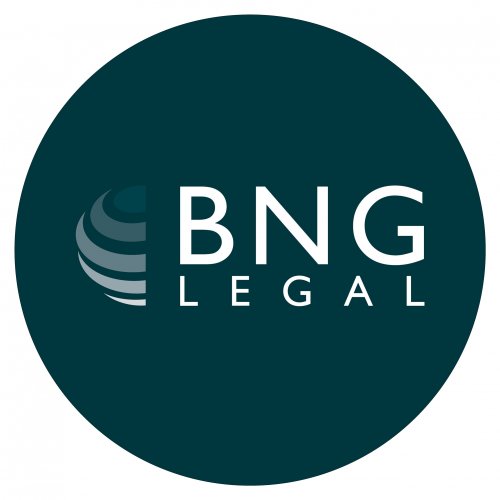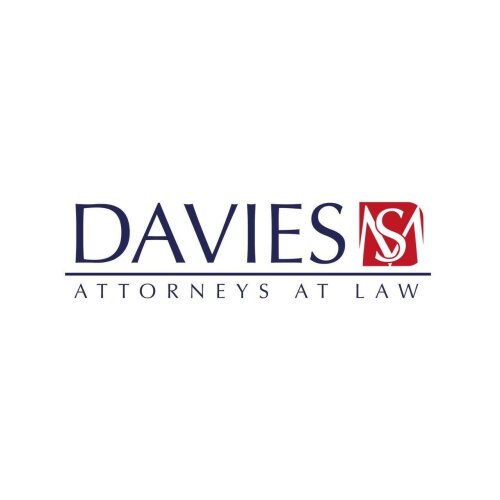Best Nonprofit & Charitable Organizations Lawyers in Cambodia
Share your needs with us, get contacted by law firms.
Free. Takes 2 min.
Or refine your search by selecting a city:
List of the best lawyers in Cambodia
About Nonprofit & Charitable Organizations Law in Cambodia
In Cambodia, nonprofit and charitable organizations are crucial players in the social and economic development sector. These entities operate with the primary mission of addressing various social needs, from education and healthcare to poverty alleviation and environmental conservation. The operation of these organizations is governed by specific legal frameworks which ensure they carry out their missions effectively while complying with national regulations. Key legislation includes the Law on Associations and Non-Governmental Organizations (LANGO), which provides guidance on the formation, registration, and operation of nonprofit organizations within the country.
Why You May Need a Lawyer
Engaging legal assistance for nonprofit and charitable organizations is often vital due to the complexities involved in their administration and compliance with local regulations. Common situations where legal help is necessary include:
- Understanding and navigating the registration process for legal establishment.
- Ensuring compliance with regulatory requirements, such as reporting obligations.
- Drafting and reviewing contracts and internal governance documents.
- Resolving disputes, either within the organization or with third parties.
- Advising on taxation issues and securing tax-exempt status.
- Handling employment-related legal matters and adhering to labor laws.
Local Laws Overview
The legislative environment for nonprofit and charitable organizations in Cambodia is primarily defined by the Law on Associations and Non-Governmental Organizations (LANGO), enacted in 2015. This law emphasizes the following key aspects:
- Registration Requirements: All nonprofit entities must register with the Ministry of Interior to gain legal status and operate formally.
- Operational Transparency: Organizations must maintain transparent operations, including regular financial reporting and audits.
- Permissible Activities: Entities should engage in activities that align with their stated mission and adhere to national interests.
- Use of Funds: There are guidelines for the acceptable use of donations and funds, ensuring they are used for their intended charitable purposes.
Frequently Asked Questions
1. What is the primary law governing nonprofit organizations in Cambodia?
The primary legal framework is the Law on Associations and Non-Governmental Organizations (LANGO), which governs the establishment and operation of these entities.
2. Is registration mandatory for all nonprofit organizations in Cambodia?
Yes, registration with the Ministry of Interior is mandatory for nonprofit organizations to operate legally within Cambodia.
3. How long does the registration process typically take?
The registration process can vary in length but generally takes a few weeks to several months, depending on the completeness and accuracy of the submitted documentation.
4. Are there any tax benefits for nonprofit organizations in Cambodia?
Yes, registered nonprofits can apply for tax-exempt status, allowing them certain tax benefits aligned with their mission-driven activities.
5. Can foreign NGOs operate in Cambodia?
Foreign NGOs can operate in Cambodia but are subject to specific regulations, including mandatory registration and reporting requirements similar to local NGOs.
6. What type of documentation is required for registration?
Required documentation typically includes a detailed organizational charter, governance structure, mission statement, and details regarding the founding members.
7. Are nonprofits allowed to engage in political activities?
Nonprofits are generally restricted from engaging in political activities and must focus on charitable and development initiatives aligned with their mission.
8. What are the penalties for non-compliance with LANGO?
Penalties for non-compliance can include fines, suspension of operations, and in severe cases, revocation of registration.
9. How can nonprofits demonstrate transparency?
Transparency can be demonstrated through regular financial reporting, audits, and making organizational decisions and funding sources public.
10. Can a nonprofit organization be dissolved?
Yes, a nonprofit can be dissolved voluntarily or involuntarily (e.g., by a government directive) if it breaches legal requirements or no longer serves its mission.
Additional Resources
Several resources and bodies can provide further assistance and information on nonprofit organizations in Cambodia:
- Ministry of Interior: Responsible for the registration and oversight of nonprofit entities.
- NGO Forum on Cambodia: A platform for dialogue and advocacy offering resources for nonprofit and charitable organizations.
- Laws and Regulations: Access to current regulations through government websites and legal advice providers.
Next Steps
If you need legal assistance in the field of nonprofit and charitable organizations in Cambodia, it's critical to consult with a legal professional specializing in corporate and NGO law. Begin by conducting research to identify reputable lawyers or legal firms experienced in this sector. Prepare any relevant documentation beforehand to facilitate a productive consultation. Legal professionals can provide tailored advice, help navigate complex legal landscapes, and ensure compliance with local laws.
Lawzana helps you find the best lawyers and law firms in Cambodia through a curated and pre-screened list of qualified legal professionals. Our platform offers rankings and detailed profiles of attorneys and law firms, allowing you to compare based on practice areas, including Nonprofit & Charitable Organizations, experience, and client feedback.
Each profile includes a description of the firm's areas of practice, client reviews, team members and partners, year of establishment, spoken languages, office locations, contact information, social media presence, and any published articles or resources. Most firms on our platform speak English and are experienced in both local and international legal matters.
Get a quote from top-rated law firms in Cambodia — quickly, securely, and without unnecessary hassle.
Disclaimer:
The information provided on this page is for general informational purposes only and does not constitute legal advice. While we strive to ensure the accuracy and relevance of the content, legal information may change over time, and interpretations of the law can vary. You should always consult with a qualified legal professional for advice specific to your situation.
We disclaim all liability for actions taken or not taken based on the content of this page. If you believe any information is incorrect or outdated, please contact us, and we will review and update it where appropriate.
Browse nonprofit & charitable organizations law firms by city in Cambodia
Refine your search by selecting a city.















